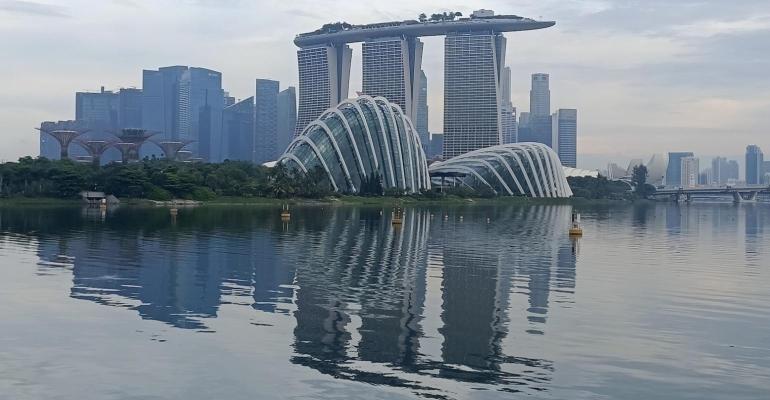To meet a goal of net-zero emissions from all harbour craft in Singapore port last week Singapore’s Minister of Transport S Iswaran announced in parliament that, “To achieve this transition, from 2030, all new harbour craft operating in our port waters must be fully electric, be capable of using B100 biofuels, or be compatible with net-zero fuels such as hydrogen.”
There are around 1,600 harbour craft currently operating in Singapore port waters.
The new targets drew support from pressure group Pacific Environment. Allyson Browne, Climate Campaign Manager for Ports, Pacific Environment: “We applaud Singapore’s commitment to move towards 100% zero-emission port and ships through its 2050 net zero emissions targets. This transition requires a jumpstart this decade, and harbor craft are a great place to start. Fossil-fueled harbour crafts -- including ferries, tugboats, crew and supply boats, fishing vessels, excursion vessels and others – produce air quality pollutants and GHG emissions that warm our planet. We must transition these vessels to electric and zero-emission fueled-engines as quickly as possible.”
The Maritime & Port Authority of Singapore (MPA) is supporting electrification through a number of initiatives including consortiums researching and developing electric ferries and lightering craft. Meanwhiule Shell and Penguin Internationalare commissioning their first full electric ferries and rapid shore chargers, scheduled for operational deployment this year.
MPA aims to develop charging infrastructure implementation masterplan by 2025 and has started a study with local research institutes from which the results are expected to be released in 2024.
Pacific Environment urged other ports to follow Singapore’s lead. “It is imperative that leading port cities like Singapore accelerate their commitment and action towards zero-emission shipping in order to protect the health of port communities, address the climate crisis and dramatically reduce pollution at the ports,” Browne said.
Copyright © 2024. All rights reserved. Seatrade, a trading name of Informa Markets (UK) Limited.
Add Seatrade Maritime News to your Google News feed.  |

